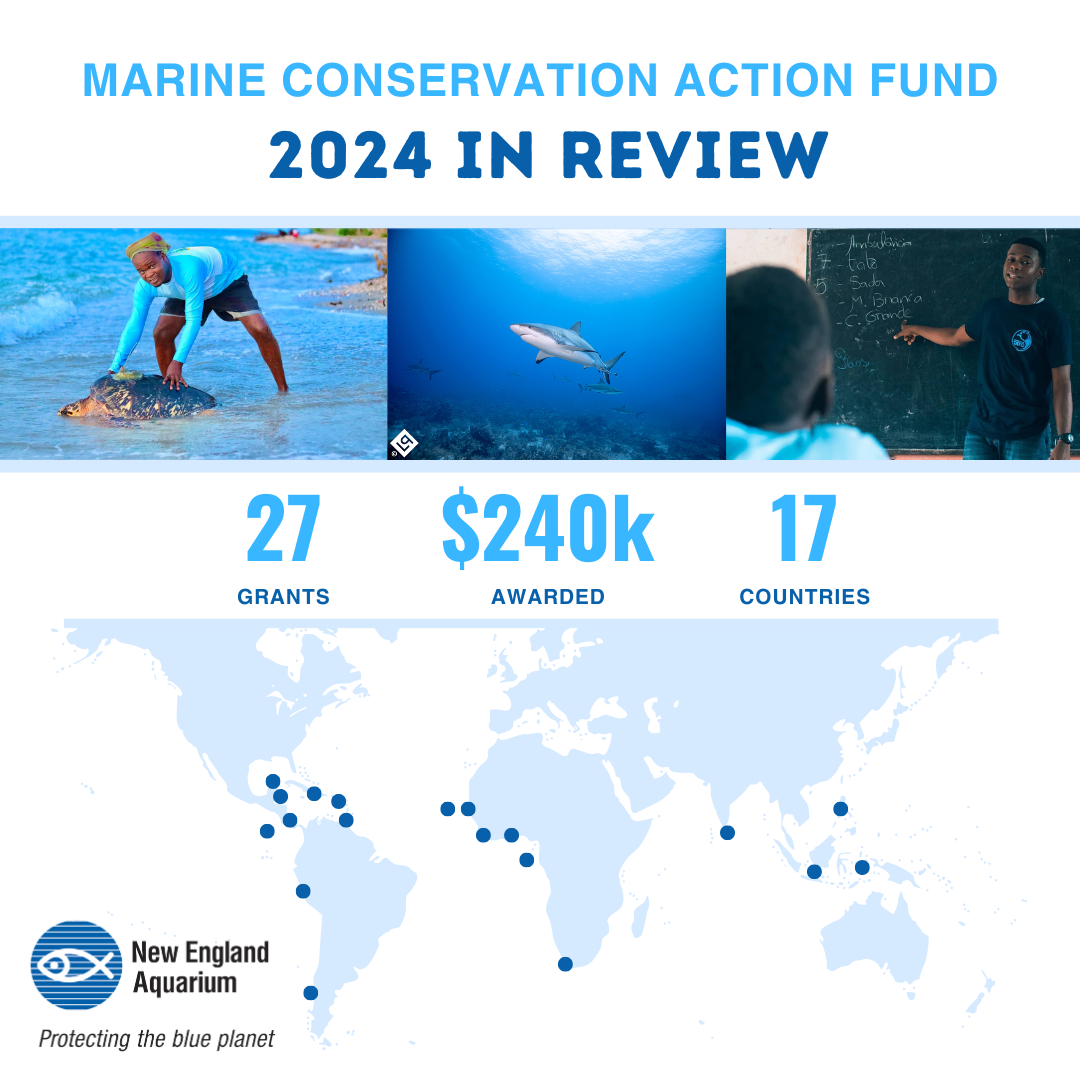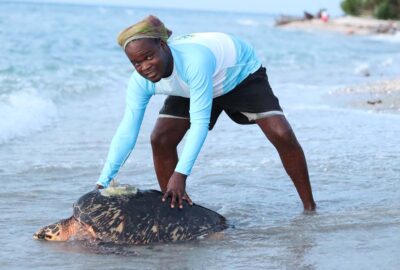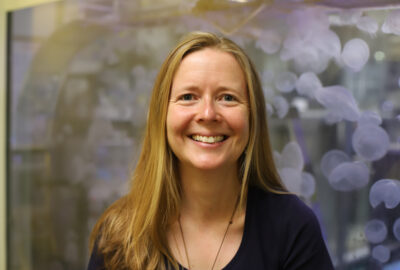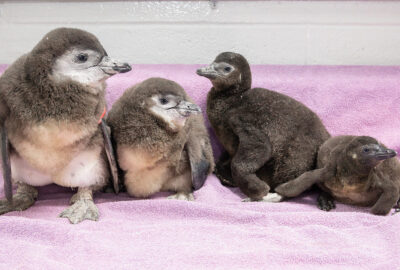We are SOLD OUT of tickets for today, Saturday April 19th.
Please note: We strongly recommend purchasing tickets in advance to guarantee entry tomorrow onward, as we do sell out during school vacation week (April 19 – 27).
The Marine Conservation Action Fund’s 2024 Year in Review
Reflecting on a year of community growth, impact, and celebration.
By New England Aquarium on Thursday, February 06, 2025

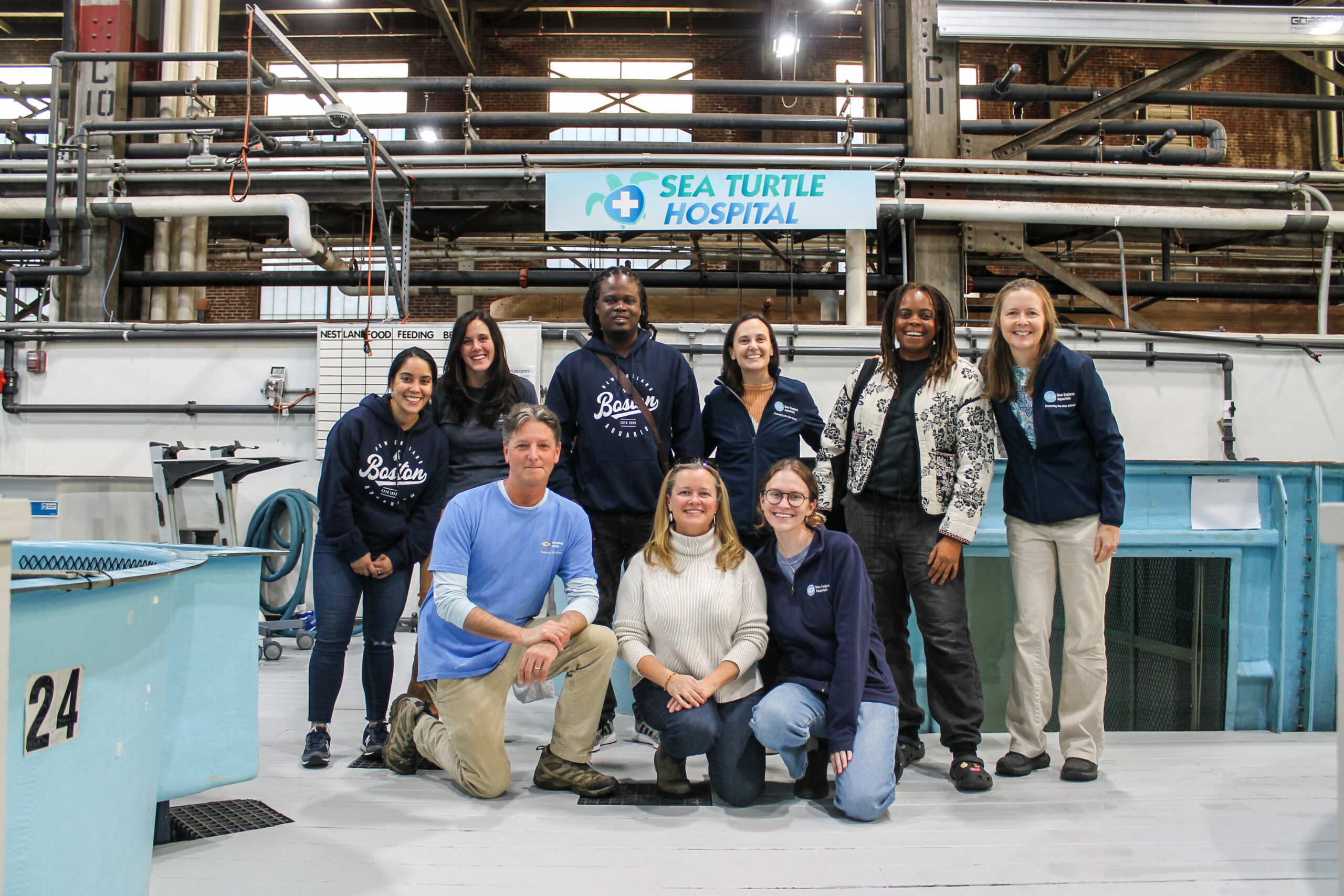
The New England Aquarium’s Marine Conservation Action Fund (MCAF) celebrated several program milestones in 2024, in addition to the many achievements of its global network of local leaders. Notably, in its 25th year, MCAF engaged wider conservation and philanthropic circles with a publication in Biological Conservation on how small grants can advance ocean conservation and management equity.
We continued to help support local leaders in ocean conservation around the world in 2024, with $240,900 awarded through 27 grants in 17 countries. Projects ranged from field work to environmental education initiatives to presentations at international conferences to virtual and in-person professional development courses.
Read on to learn about 2024 projects, MCAF milestones, and more!
2024 Projects
MCAF Fellows and Project Leaders have been hard at work monitoring endangered sea turtles, rescuing abandoned African penguin chicks, restoring coral reefs, expanding community support for conservation, and advocating for sustainable small-scale fisheries—among other initiatives.
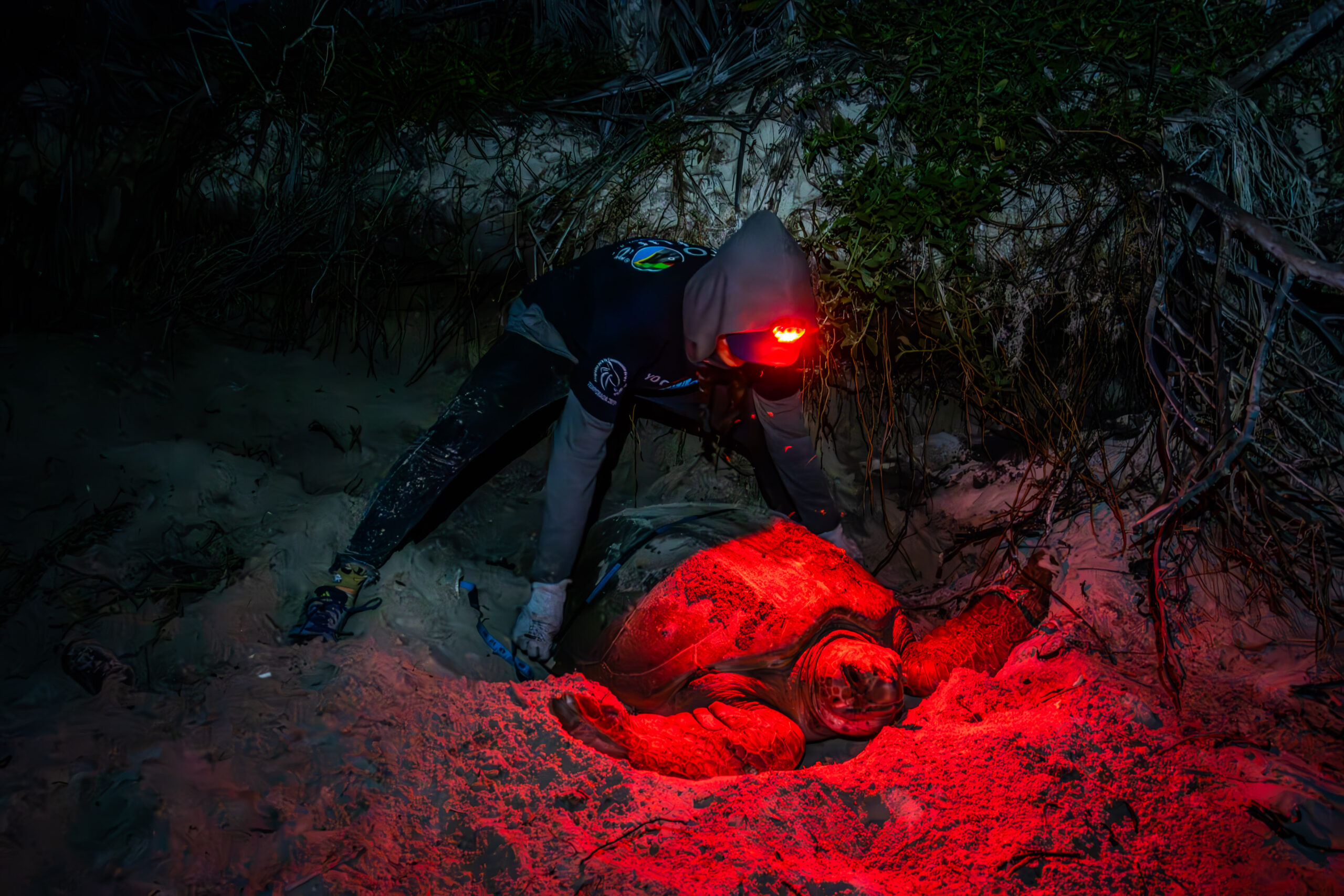
Community-based sea turtle conservation: protecting nesting habitats and reducing human impact
- Melania Lopez and her team at Pronatura Península de Yucatán A.C. are identifying key hawksbill turtle nesting habitats along Mexico’s Yucatán peninsula and creating educational material in collaboration with the tourism sector of El Cuyo to reduce the human impact on the coastal dunes that protect these nesting sites.
- Clemente Balladares and the local community of Macuro, Venezuela are patrolling beaches and transplanting endangered sea turtle nests to continue efforts that reduced illegal poaching from 88% to 1% from 2003-2015. In a recent update, Clemente was excited to report a drop to zero percent poaching by humans; 8,137 hawksbill hatchlings released (18% more than 2023); and great success with the continued environmental education program, through which two teachers trained ~245 students.
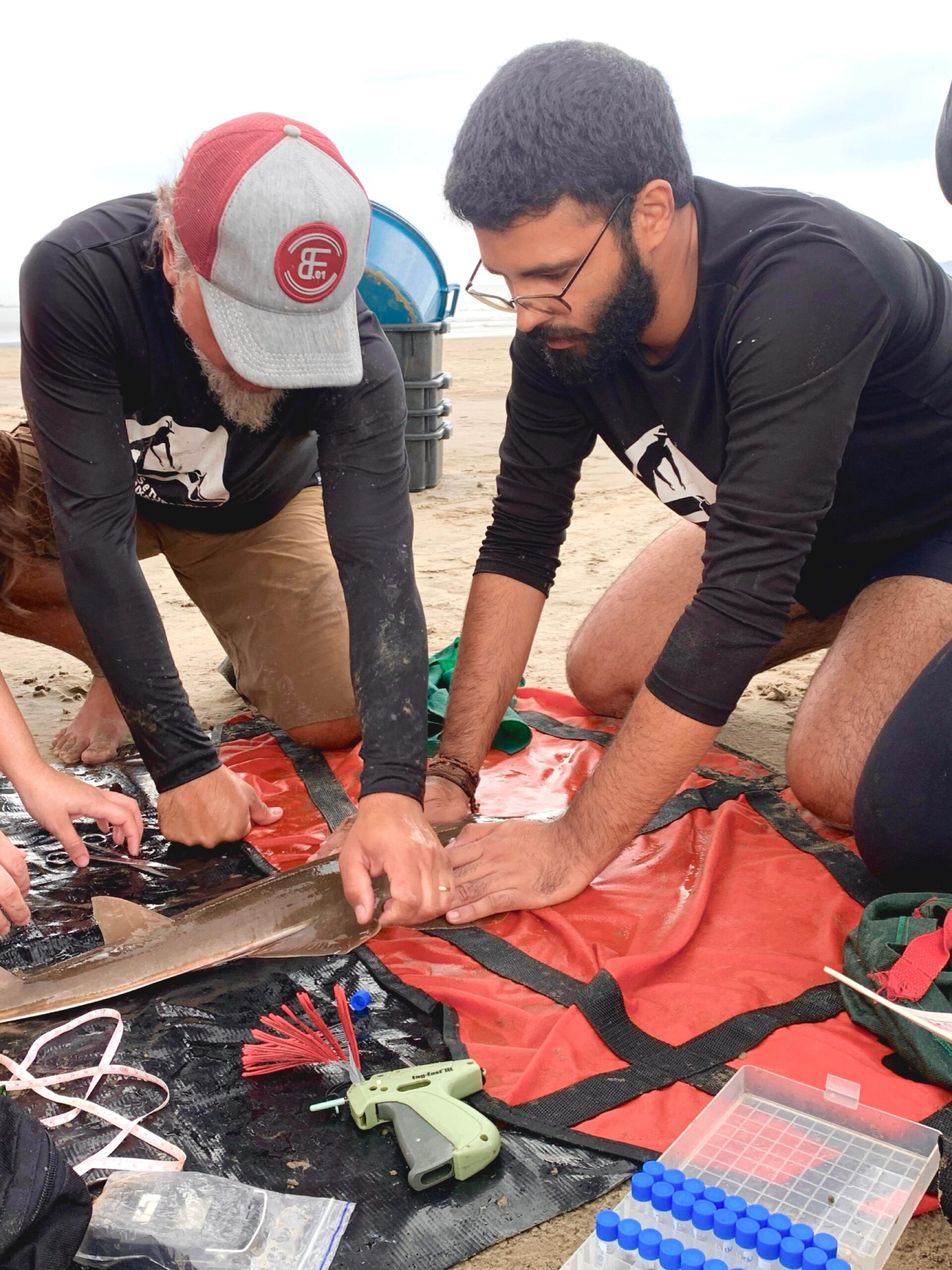
Protecting sharks and rays: advancing research and conserving critical habitats for threatened species
- Andrés López, Ilena Zanella and the Misión Tiburón team are building on their previous work in Golfo Dulce, Costa Rica to increase knowledge about the migratory routes of sharks and other threatened species that use the seamount chain connecting the Golfo Dulce shark sanctuary to Isla del Coco.
- Early Career Ocean Professional Alberto Mejía-Paniagua of ilili is using Baited Remote Underwater Video Systems (BRUVs) to study shark diversity and abundance in Utila, Honduras and developing the country’s first shark identification guide for local fishers and communities.
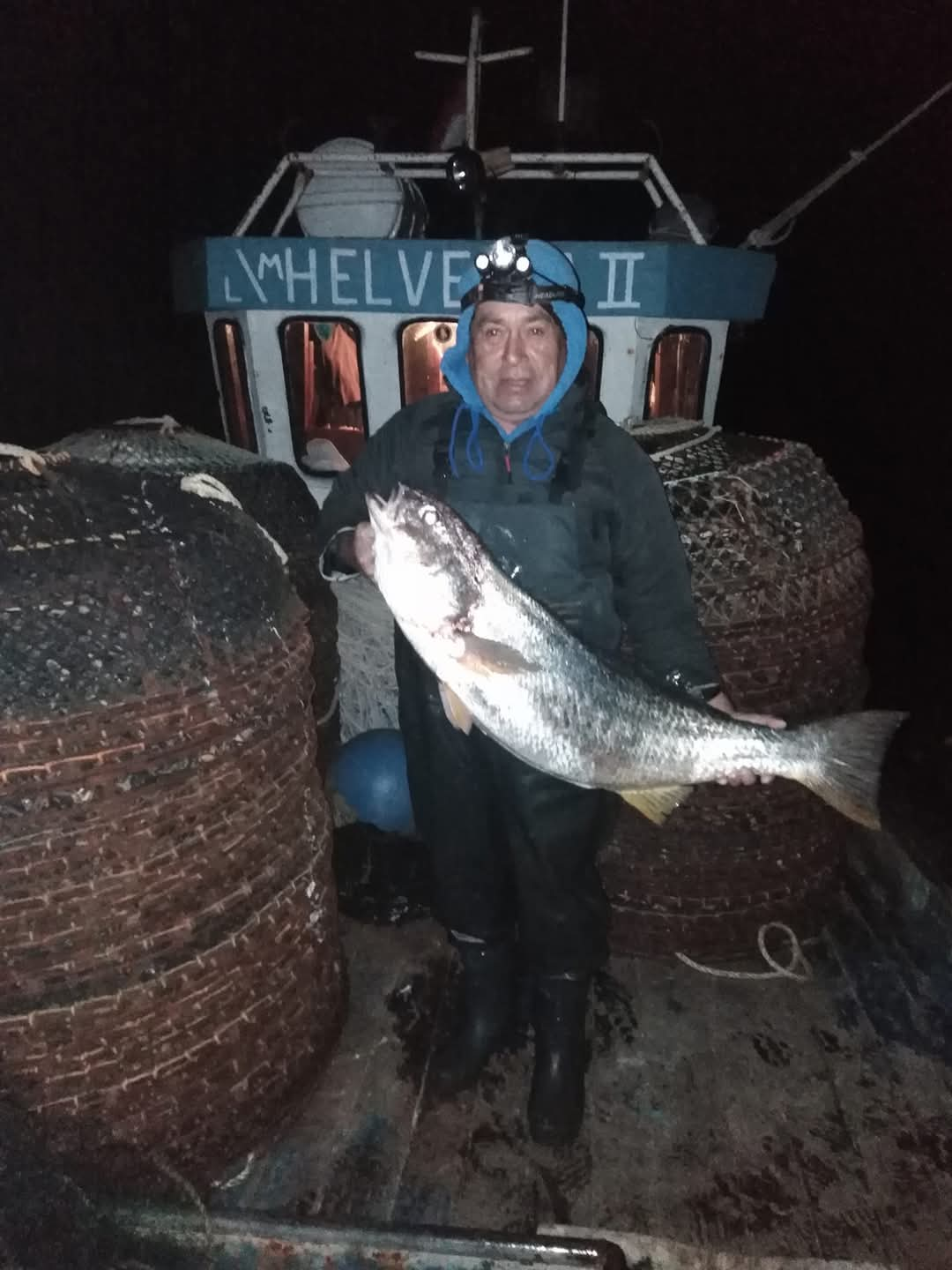
Sustainable fisheries: enhancing local livelihoods and promoting best practices for long-term resource management
- Claudio Pichaud and the Comité Productivo de Extractores de Jaibas de Ancud (Crab Fishers Committee of Ancud) have been working in Chile for more than 15 years to improve their stone crab fishing practices on the island of Chiloé. Their MCAF-supported project aims to raise awareness of these replicable best practices for the new generation of fishers, key actors in the sector, and schoolchildren to bridge generational changes in the fishing sector.
- Nathaniel Kollie is researching the direct and indirect impacts of distant water fishing on local communities’ livelihood and food security in Liberia to inform a set of recommendations for the National Fisheries and Aquaculture Authority (NaFAA) and other interested actors through interviews with coastal communities. In a recent update, Nathaniel shared: “I conducted a stakeholder engagement workshop in October with critical informants, including representatives from the NaFAA. During this workshop, I socialized my research project with these stakeholders via PowerPoint presentation, gained their support, and gathered preliminary insights relevant to my study.”
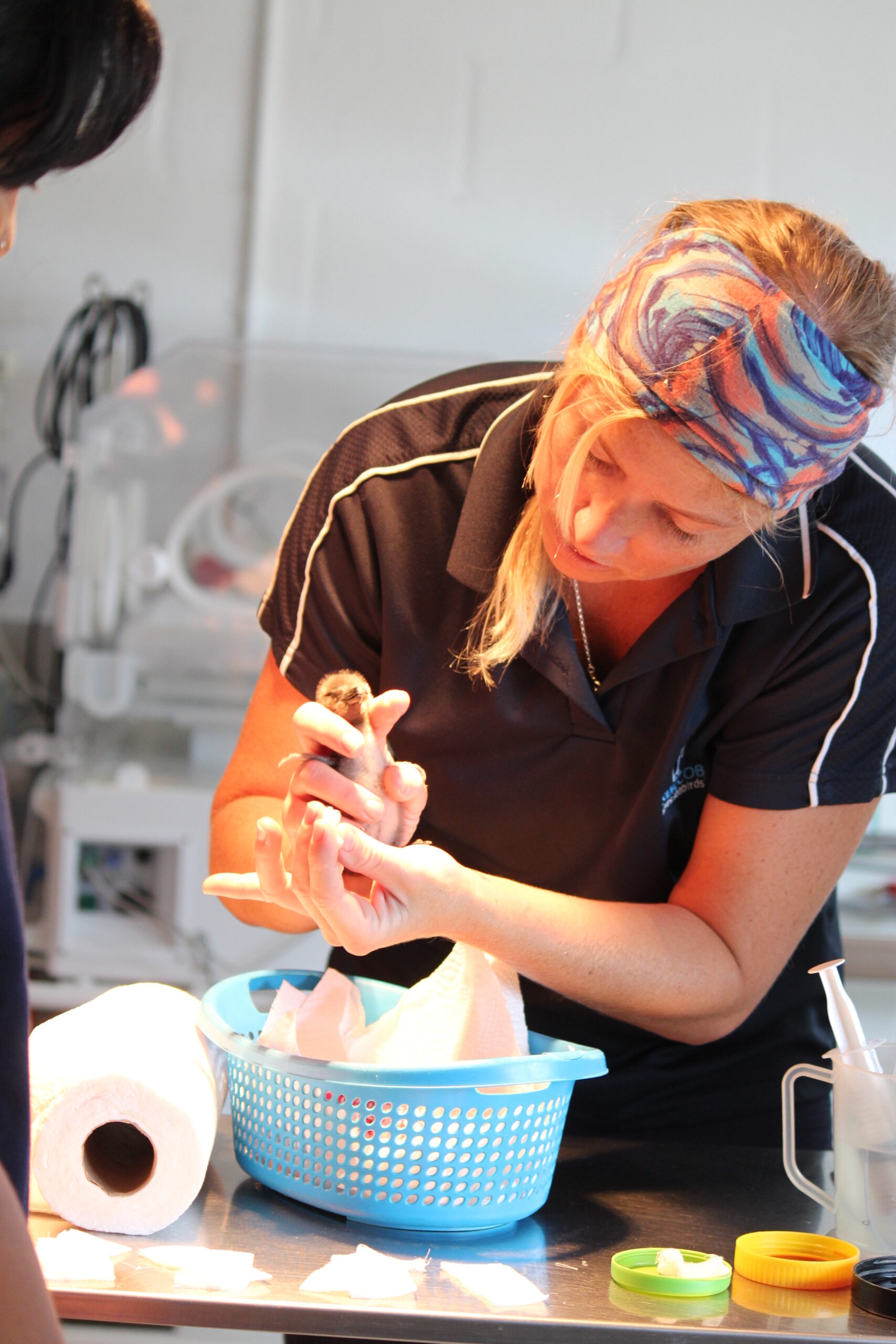
Restoration and rehabilitation: growing corals and rescuing penguins
- The team at the Marine Resilience & Sustainability (MARES) Center is working to restore marine biodiversity in Mahahual, Mexico that has been harmed by the rapid development of tourist infrastructure through reproducing coral species in a nursery and transplanting them to a restoration site in the wild. In a recent update, Project Leader Cassiopea Carrier Doneys shared an anecdote on a MARES team member: “Through our community-driven approach to coral restoration, Eda transformed from practicing law to becoming a “Restauradora” (coral restorer), demonstrating how passion for marine conservation can create deep connections between humans and their local ecosystems while inspiring others to protect our oceans. This is a testament to MARES’ mission of empowering individuals to create meaningful impact in marine ecosystem restoration.”
- The Southern African Foundation for the Conservation of Coastal Birds (SANCCOB) rescued and hand-reared African penguin eggs and chicks that were abandoned during severe storms along the southwestern coast of South Africa last summer. The fledglings were rehabilitated at the SANCCOB center in Cape Town and released back into the wild to contribute to the wild population of these critically endangered birds.
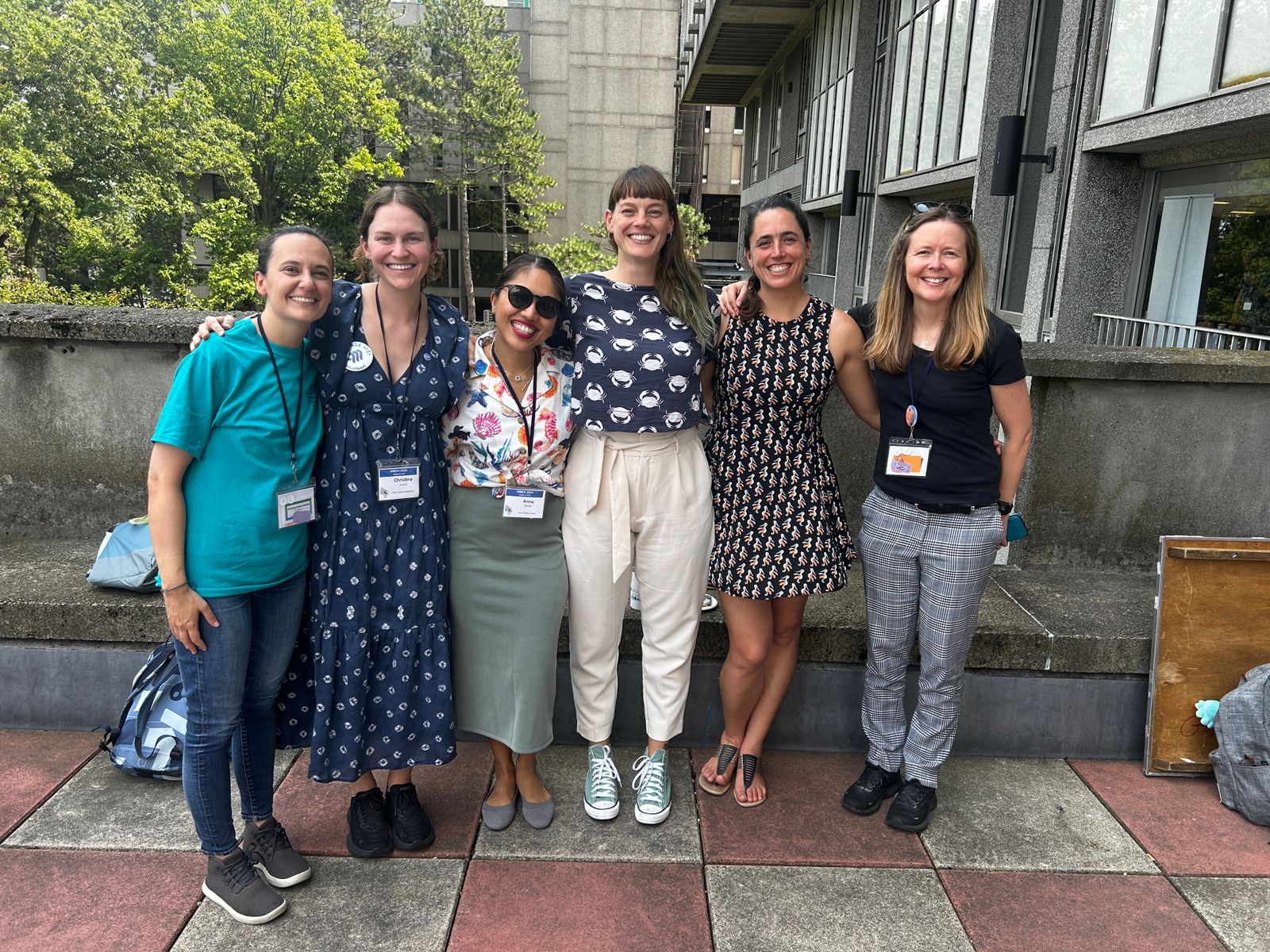
Global conservation leadership: presenting research at key marine conservation conferences
- Yolanda Sánchez and Celeste Kroeger Campodónico of RELATO and Anna Oposa of Save Philippine Seas attended the National Marine Educators Association (NMEA) Annual Conference in Boston, which brought together hundreds of professional educators dedicated to teaching about marine, coastal, and aquatic environments. This convening offered a valuable opportunity for learning exchange, as these three MCAF community members all lead ocean education initiatives in their respective countries.
- Daniel Fernando, Director of Blue Resources Trust (BRT) and MCAF Fellow, is organizing Sharks International 2026 – the world’s largest shark and ray conference – in Sri Lanka. As host, BRT will ensure broader accessibility and emphasize the translation of science to positive conservation policy for the conference’s first time on the Asian continent.
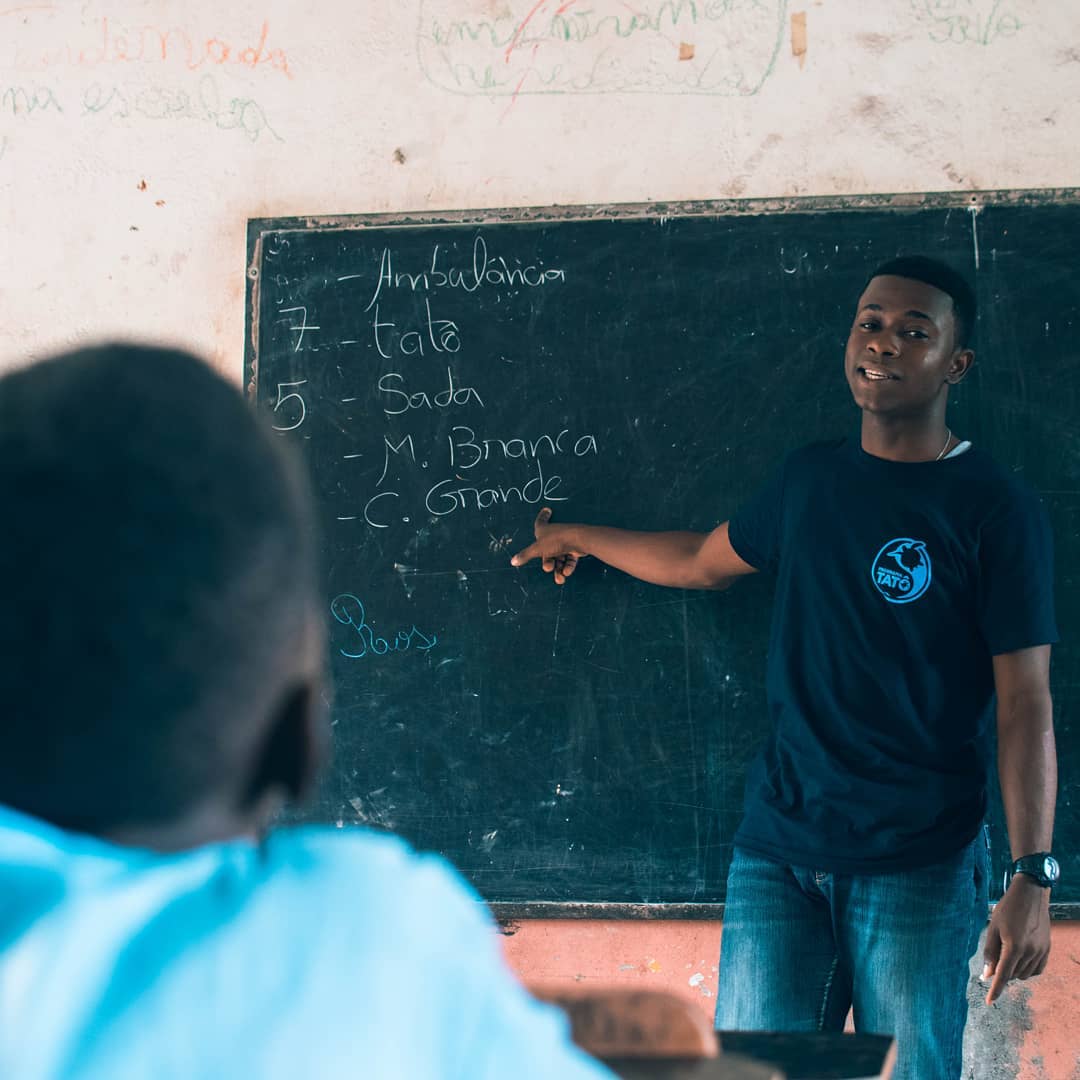
Community stewardship and outreach: Expanding ocean science education and training efforts
- Frederic Airaud and the Programa Tatô team aim to combine local community sea turtle conservation efforts on São Tomé Island off the western coast of Central Africa by strengthening the training and technical support of local monitoring agents and offering alternative livelihood opportunities to former sea turtle harvesters and traders.
- Veta Wade and the Fish ‘N Fins team aim to reshape how ocean research and stewardship are carried out in Montserrat by empowering locals to lead marine conservation efforts in partnership with the Government. To engage a broader audience, they are producing a series of short videos and developing an online portal, which will showcase their work and Montserrat’s marine natural heritage to youth, conservationists, Governments, potential funders and visiting tourists, locally and globally.
- Ariana McCarthy and her team at the Costa Rican Alliance for Sea Turtle Conservation & Science (COASTS) are providing environmental education, strengthening local skills, and fostering leadership in ocean conservation in the coastal region of Talamanca, Costa Rica, as part of their ongoing sea turtle conservation efforts on Gandoca Beach.
MCAF Updates
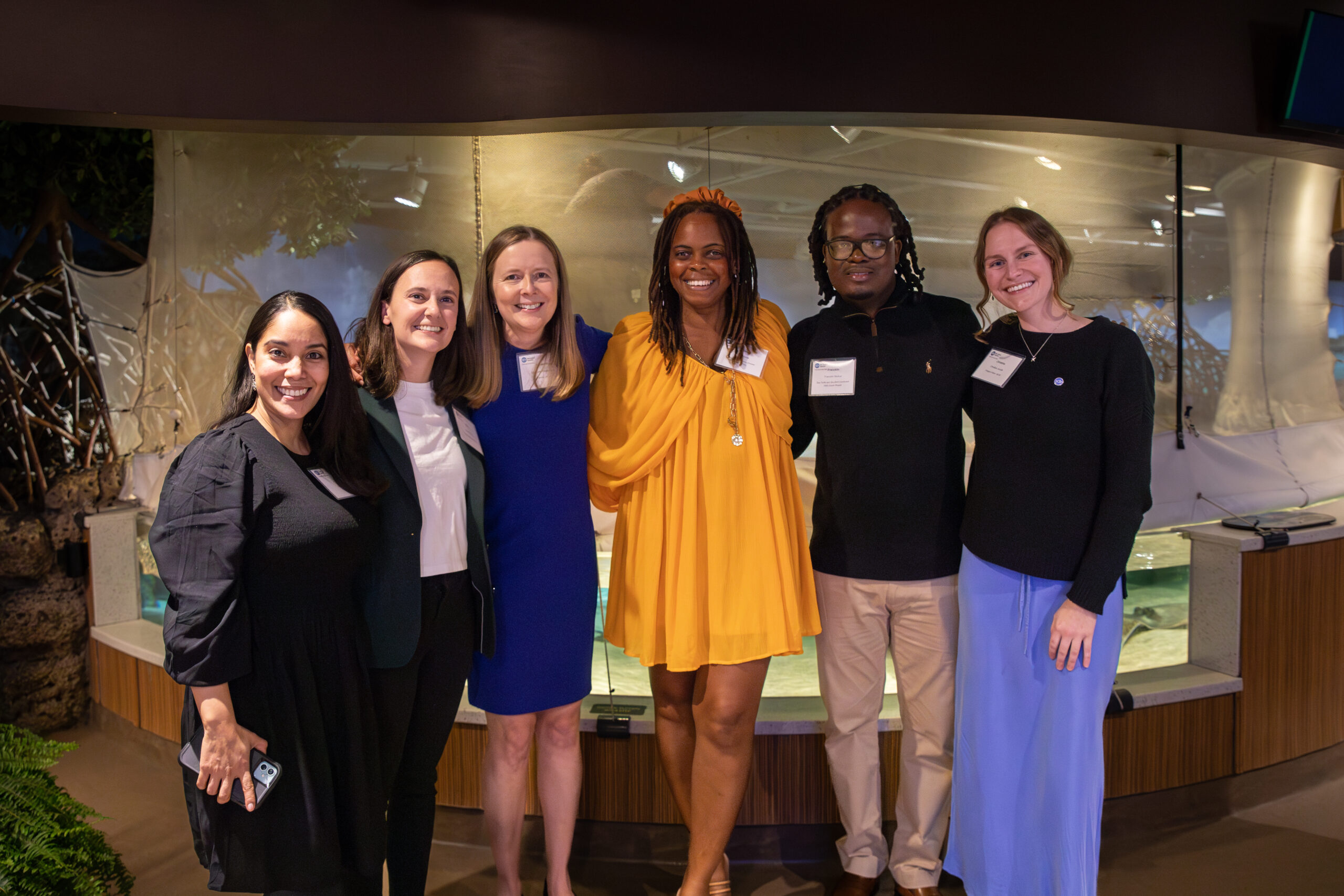
Celebrating 25 Years, publishing a paper, and representing MCAF at international conferences
- MCAF’s 25th anniversary: Over the past quarter-century, MCAF has supported 250+ projects in 60+ countries that have made tangible impacts on marine conservation worldwide. See our anniversary press release here. We had a wonderful time celebrating with longtime MCAF supporters in November!
- Publication on the power of small grants: We are very excited to have published a paper in Biological Conservation, titled “Small grants advance global ocean conservation and management equity.” Based on 21 years of MCAF project data, this publication highlights the transformative impact of our small grants approach and underscores our commitment to promoting equity in conservation. See our summary slides, press release, and blog for more information.
- UN Ocean Conference & IMCC7: In the spring, Elizabeth and Emily attended the UN Ocean Conference in Barcelona, where they co-hosted a panel on equitable ocean conservation that featured Misión Tiburón Co-Founder and MCAF Project Leader Ilena Zanella as a speaker. In the fall, Emily and Christina represented the Aquarium and MCAF at the 7th International Marine Conservation Congress in Cape Town, South Africa (IMCC7). Read more about their experience at IMCC7 here.
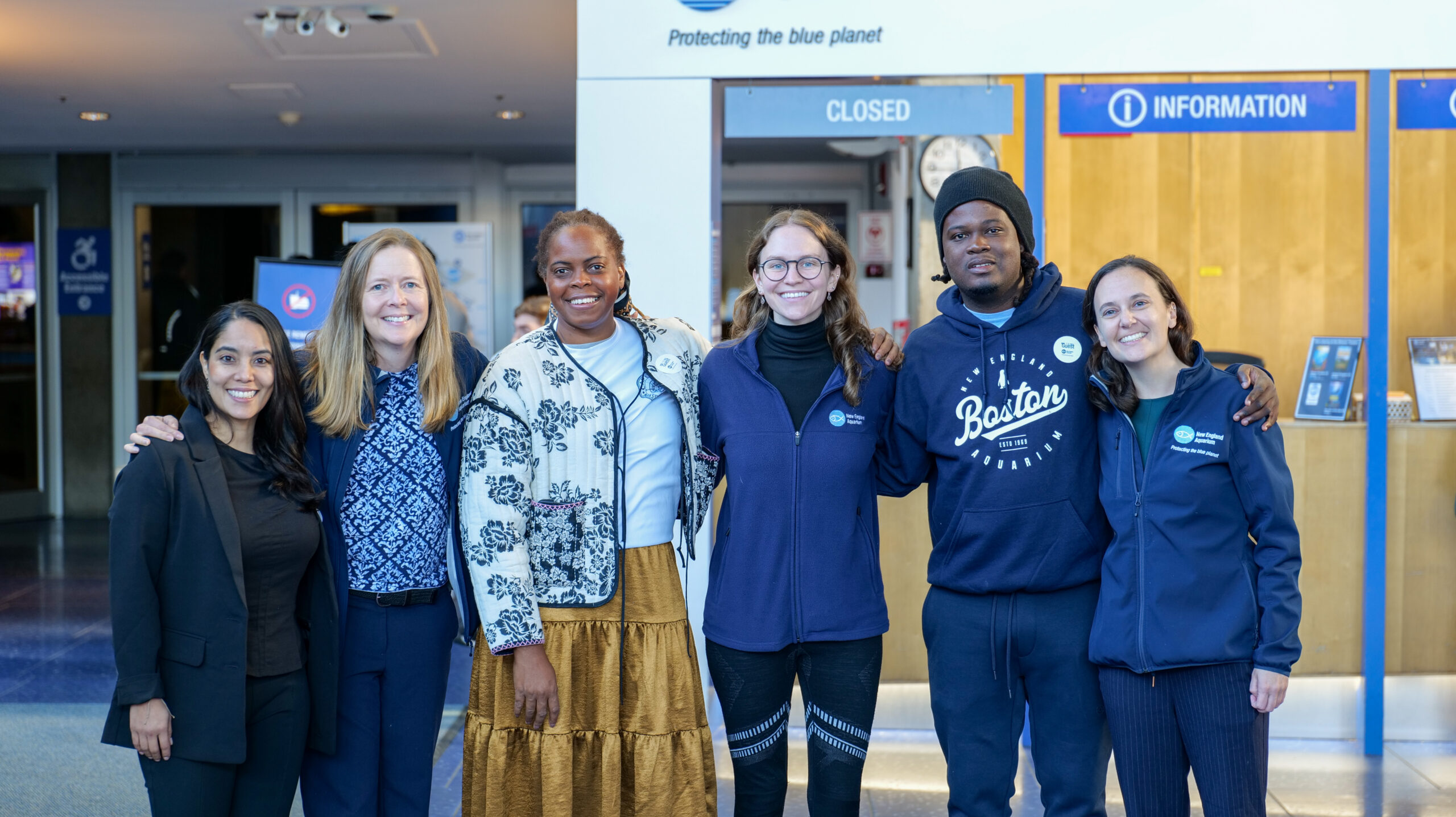
Strengthening community connections through new virtual offerings and an in-person knowledge exchange
- Sea turtle convening in Boston: We were thrilled to host three MCAF community leaders focused on sea turtle conservation – Ani Henriquez (ProCosta, El Salvador), Francklin Barbier (Haiti Ocean Project, Haiti), and Veta Wade (Fish ‘N Fins, Montserrat) – to the New England Aquarium in November. This four-day visit offered invaluable opportunities for collaboration, knowledge exchange, and networking with MCAF supporters, Aquarium staff, and each other.
- Virtual knowledge exchanges: These inaugural virtual sessions allowed members of our community focused on sea turtle conservation to learn from each other and brainstorm opportunities for future collaboration. We look forward to hosting more sessions around different study subjects and themes!
- Informational Webinars: MCAF hosted informational webinars with MCAF Fellows to showcase different opportunities that conservationists can apply for through the program.
Looking Ahead to 2025 and Beyond
Looking to 2025, we are excited to have already begun the two very important processes of inducting up to four new MCAF Fellows and unearthing MCAF’s core values in collaboration with the Fellows and Aquarium staff! As always, we will continue our mission of supporting local leaders worldwide and advocating for more equitable practices in ocean conservation and philanthropy.
We are deeply grateful to our supporters, partners, and the MCAF community whose dedication drives us forward. Our community of MCAF Fellows and Project Leaders is more connected than ever, and we are eager to build on the momentum of 2024’s successes. Here’s to another year of impactful, locally led conservation!

